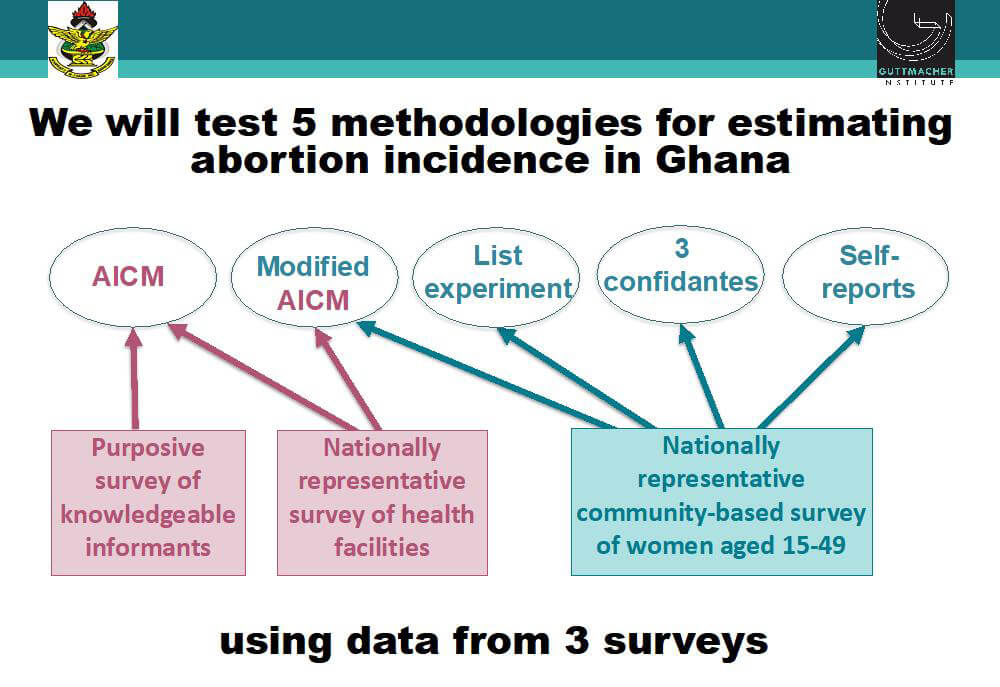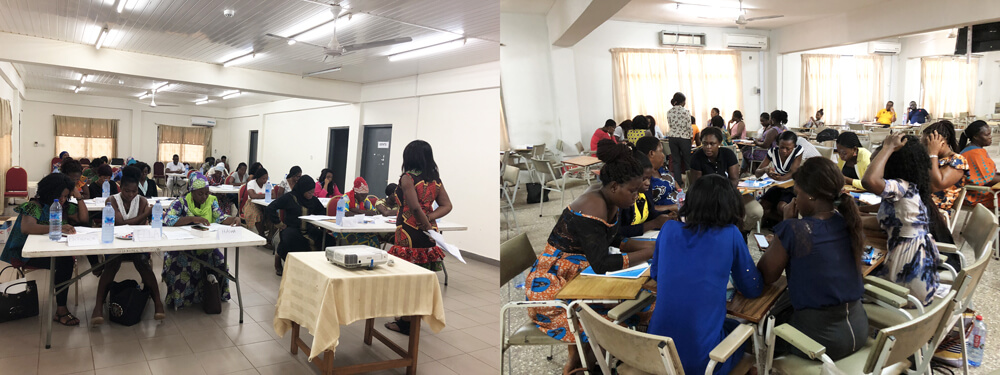Abortion is a hushed topic in Ghana as in many other places. Even though Ghana has one of the most liberal laws on abortion, the subject is rarely discussed and the paucity of abortion data is pervasive. Current national estimates by the 2017 Ghana Maternal Health Survey quote the abortion prevalence at 20% (GSS/GHS/ICF, 2018). This survey used one method – asking the women aged 15-49 directly whether had ever had an abortion - and the figure is most likely an underestimate. Abortion is one of the top-three leading causes of maternal mortality in Ghana, so the need to better understand the burden is a public health priority.
Improving the capacity to measure the incidence and descriptive demography of induced abortion is an essential component to understanding and addressing unsafe abortion. In the absence of such data, the ability to engage policy makers, and advance the public health imperative of improving women’s access to safe abortion care services and post-abortion care is hindered.
The KNUST-School of Public Health with support from the Ghana Health Service and in partnership with the Guttmacher Institute and the Johns Hopkins Bloomberg School of Public Health is undertaking a nationally representative survey on abortion.
This project has five primary objectives:
- Estimate the current incidence of abortion (legal and illegal), nationally and within each of the three ecological zones (Northern, Middle, Coastal) of Ghana.
- Estimate the annual number and rate of pregnancies (and unintended pregnancies) occurring in Ghana.
- Estimate the number and rate of women who were treated in facilities for complications resulting from illegal and unsafe abortion procedures.
- Compare estimates from the different abortion estimation methodologies and suggest best practices.
- Examine reasons for non-use of modern contraception among women with an unmet need for contraception, including fear of side-effects, perceived infertility, and the role of traditional method use.
Since the beginning of March 2018, the survey team made up of experts from the KNUST-School of Public Health, the Johns Hopkins Bloomberg School of Public Health and the Guttmacher Institute have trained 120 resident enumerators (REs), 16 supervisors and 7 central staff to undertake three (3) surveys that will employ five (5) methodologies to determine the burden of abortion in Ghana and other related reproductive health indicators such as the unmet need for contraception among others. The surveys are: Community-based survey (CBS), Health Facility Survey (HFS) and the Knowledgeable Informants Survey (KIS). The REs will interview nearly 4000 women during the CBS in 100 randomly selected enumeration areas across the country. The supervisors will collect data from 600 health facilities and the central staff will interview 125 knowledgeable informants based on their knowledge of the abortion burden in Ghana. All interviews will be conducted using android mobile phones/tablets uploaded ODK. The survey is expected to last 12 weeks starting May 21, 2018.



